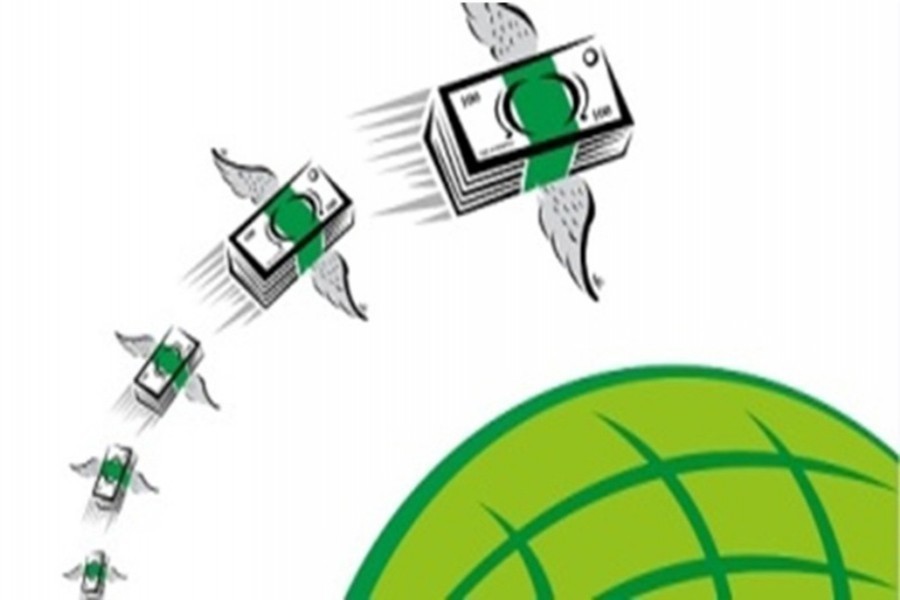The inflow of remittances grew by more than 16 per cent in the first quarter (Q1) of this fiscal year (FY) as the government has announced a 2.0 per cent incentive on remittance receipts.
The flow of inward remittances rose to US$4.51 billion during the July-September period of FY 2019-20 from $3.87 billion in the same period of the previous fiscal, according to the central bank's latest statistics.
The money sent home by Bangladeshis working abroad amounted to $1.47 billion in September 2019, up by $ 23.67 million from the previous month's level.
In August last, the remittances stood at $ 1.44 billion. It was $1.14 billion in September 2018.
"We expect that the upward trend of inward remittance will continue in the coming months as the government has announced 2.0 per cent incentive on remittance receipts.
The government had already allocated Tk 30.60 billion as incentive in the budget for the FY '20 to encourage the expatriate workers to send their money through legal channels.
Higher fuel oil prices in the international market along with lower interest rate because of possible meltdown of the global economy has helped push up the inflow of remittance during the period under review, according to the central banker.
Echoing the BB official, Bangladesh Krishi Bank (BKB) Managing Director Md Ali Hossain Prodhania said the government's announcement of 2.0 per cent cash incentive on remittance receipts helped achieve the higher growth of inward remittances.
"Most of the banks are now offering better exchange rate to encourage remitters to send their money home using the banking channel," the senior banker explained.
He also said the two last Eid festivals also contributed to the higher growth of inward remittances during the period under the review.
Currently, 29 exchange houses are operating across the globe, setting up more than 1200 drawing arrangements abroad, to expedite the remittance inflow, another BB official has said.
The central bank of Bangladesh earlier took a series of measures to encourage the expatriate Bangladeshis to send their hard-earned money through the formal banking channel, instead of the illegal "hundi" system to help boost the country's foreign exchange reserve.
On the other hand, the number of overseas jobs declined in the recent months following sluggish demand for workers in Middle East countries, according to insiders.
About 417,084 workers found jobs abroad in the eight months to August 2019 against 500,356 in the same period of the last calendar year, according to the official figures.
Some important destinations including the United Arab Emirates, Malaysia, Kuwait and Bahrain remained off-limits for Bangladeshi workers for long, they explained.
They also sought effective diplomatic efforts from the government to open the closed markets.
More than 12 million Bangladeshis had gone abroad since 1976, the official data showed.


